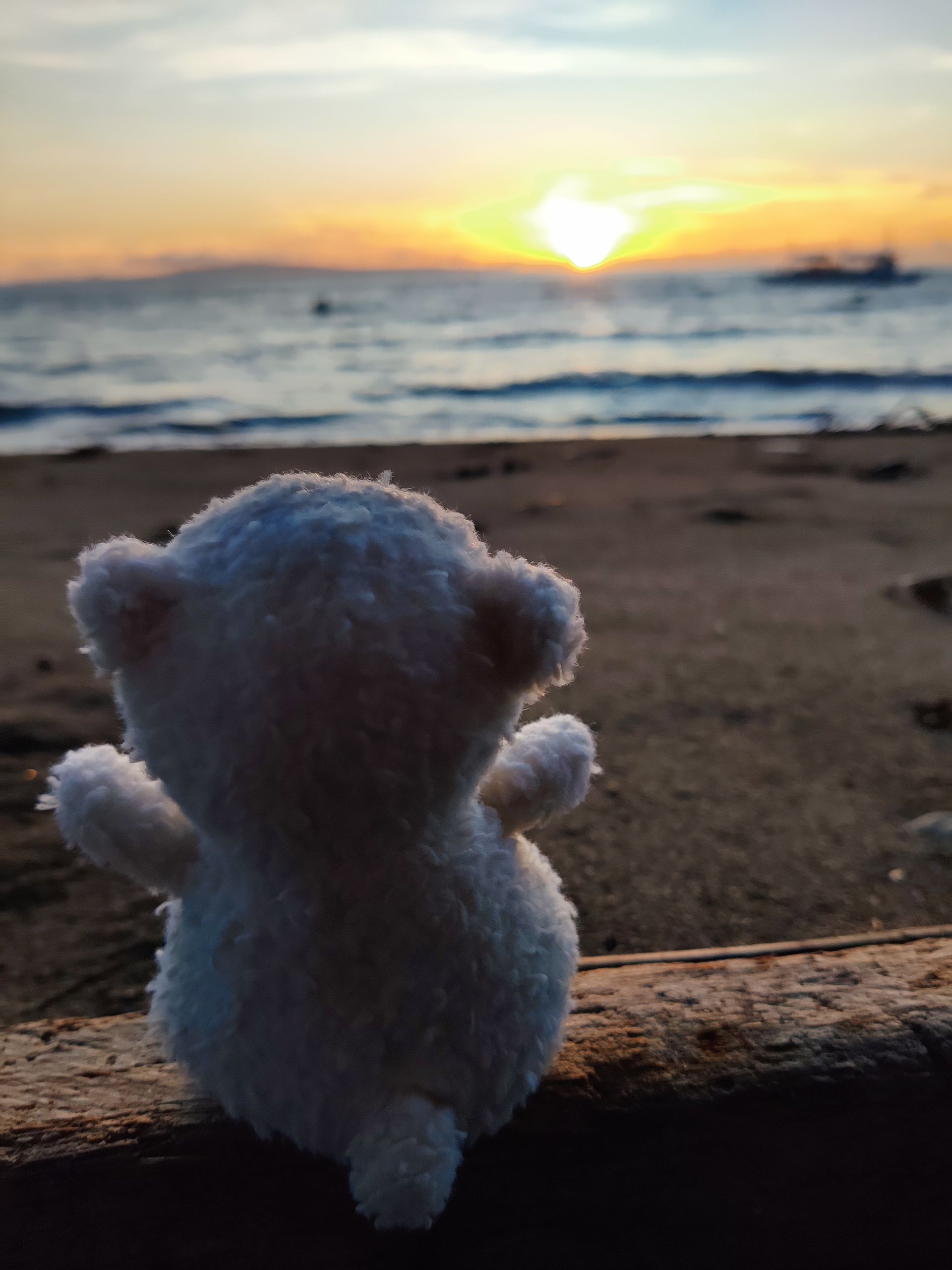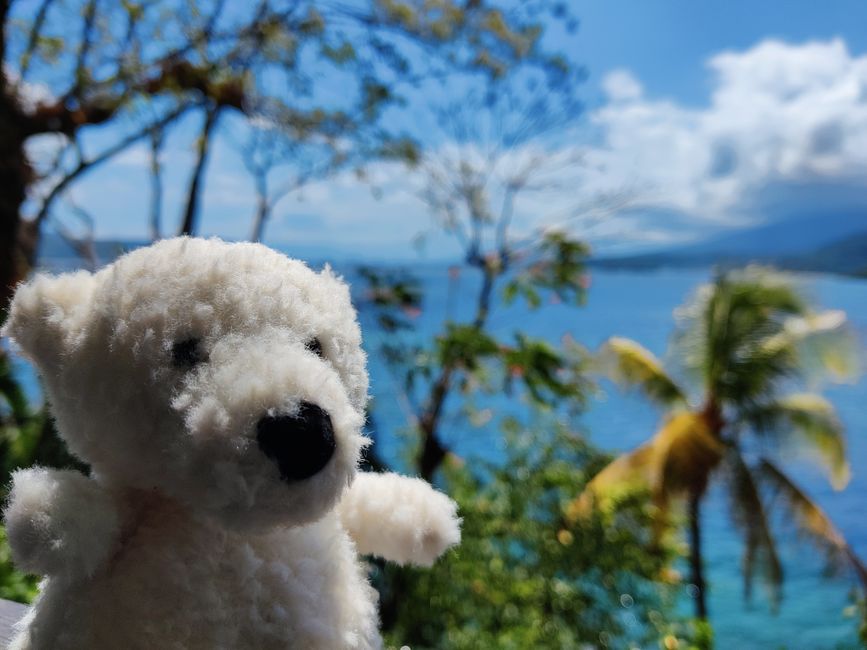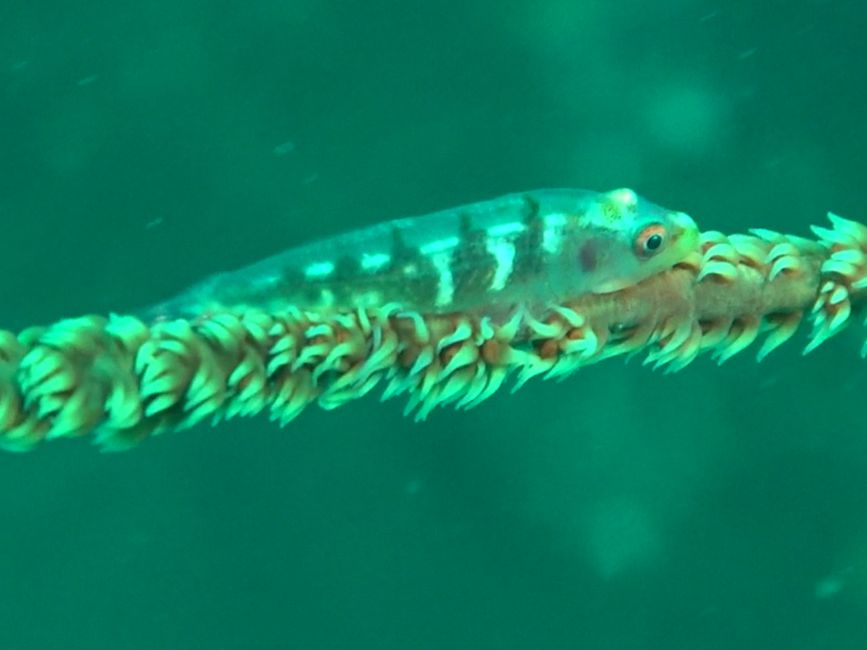Reef death continues
Argitaratu: 14.01.2024
Harpidetu Buletinera
From Guam to Hawaii, 5000 km east and the hope for better reefs and more marine life.
But before diving, the adventure: In a diving boat, which I would describe as a nutshell, there are 6 paying guests (500 + dollars for a 2-tank dive for 2 divers), 2 guides, the captain and 16 filled diving bottles. Therefore there is basically only standing room in moderately rough seas. The targeted dive site is only 10 minutes from the harbor and is said to be the so-called “signature” dive site, i.e. the best that the island of Kauai has to offer underwater.
In fact, the journey time to the planned dive site is only 10 minutes and we see whales on the way - crazy, it's going to be great! But what follows is a sometimes hectic 20-30 minute search for the buoy, which is not found above water as usual, but about 2-3 m under water. A guide, equipped with a total of 11mm neoprene, burns 2000 calories because he is constantly confronted with the captain's new coordinates while searching underwater for the buoy.
Finally the right buoy has been found and moored, the first divers are sent into the water. The others then get ready quite comfortably, as there isn't that much space on deck (nutshell). After what feels like 10 minutes, the diving guides are the last to jump into the water. A different approach...
After diving to a depth of 22-23 m, a moray eel...
Hurray, that could be something...
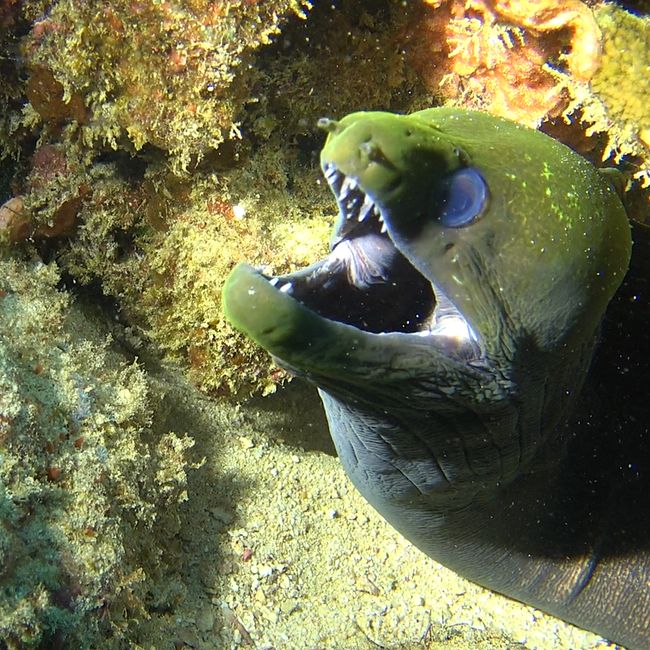
But after 5 minutes you realize: the reef is a cemetery. Only occasionally are there corals in which a fish sometimes tries to hide or rest.
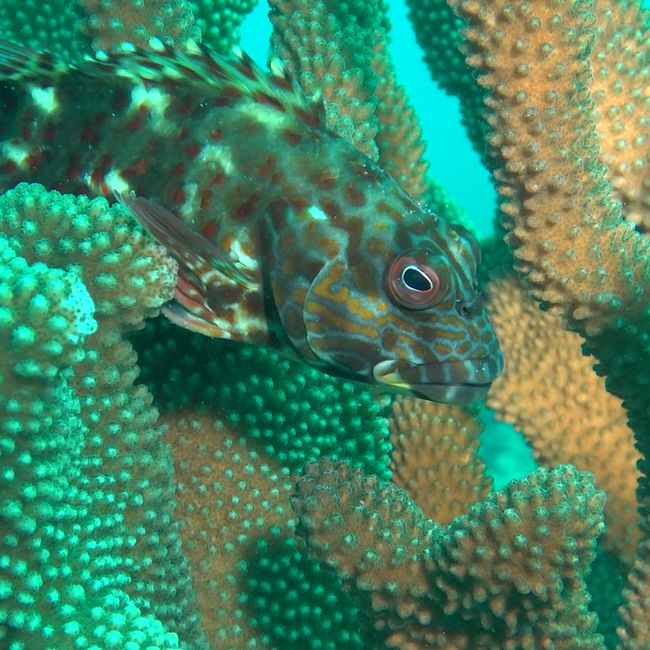
Otherwise, unfortunately, a similar picture to that in Guam. Here on Kauai there was a massive coral bleaching event in 2014 and the reef has not really recovered.
The studies of the relevant research institutions also report on this on the Internet:
https://www.hawaiinewsnow.com/story/25969583/giant-corals-rapidly-dissolving-off-kauai/
https://kauainownews.com/2022/10/16/worst-case-scenario-research-finds-50-of-worlds-coral-reefs-face-death-by-2035/
These photos without filters only show a small part: broken, bleached corals everywhere.
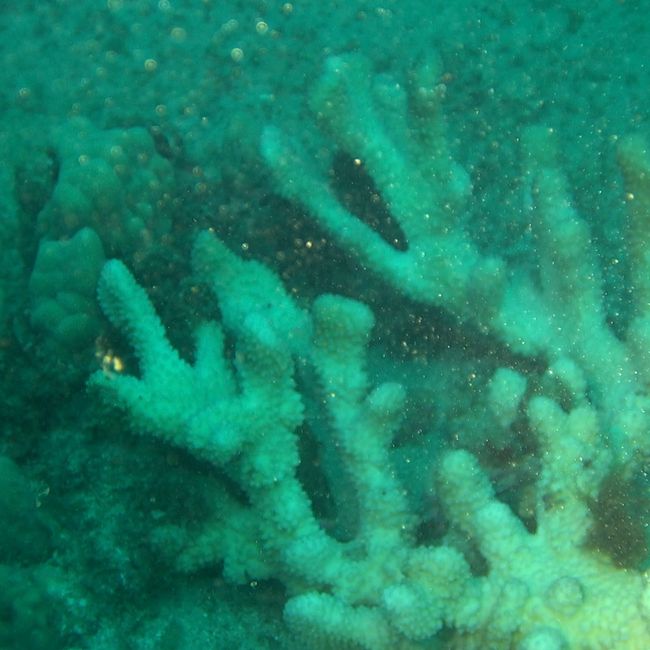
Even two cowrie snails or one or two turtles cannot significantly improve the overall impression.
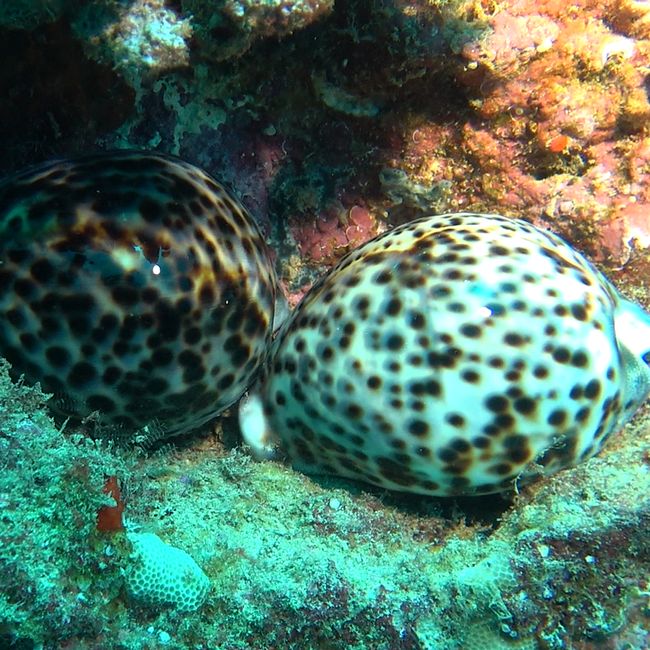
Only the fakes and illusions of some advertising see things differently. However, if you take a closer look at this website, you won't see many photos of reefs, but of above water. The signatures on the reef photos say “marine life” and you can see 3 small fish in a reef graveyard.
https://thehawaiivacationguide.com/snorkeling-tours-on-kauai/
But that's just marketing... facade, false claims.
A small crab looks furtively from between the branches of the coral, which looks surprisingly good, as if to say: “I knew it”.
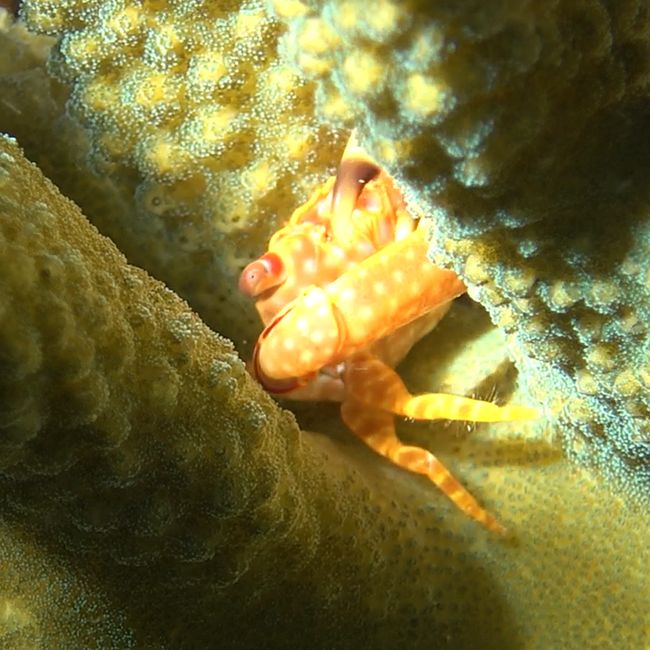
The second dive gets even worse. Again just a cemetery and a cool 24°C water temperature (there is 3mm neoprene) quickly at the end.
Annoyed, disappointed and hypothermic, we end the dive prematurely after only 30 minutes. Back on the boat the guide asks how it was? We answer “very disappointing” and that no marine life can be seen anymore. “Well,” says the diving guide, you shouldn’t have gone to Palau before, of course it can’t be compared. And in Kauai it's been like this for 10 years.
It's a shame, a shame and unfortunately this doesn't bode well for the future of the reefs. But when the reefs die, the impact on the entire world is very negative.
We hope to be able to regain hope in the Galapagos and will probably focus most of our time in Hawaii on the "miracles above water". And since we have already seen so many whales - mostly from land - there is still a lot to see in the sea too.
Harpidetu Buletinera
Erantzun

Bidaien txostenak AEB
